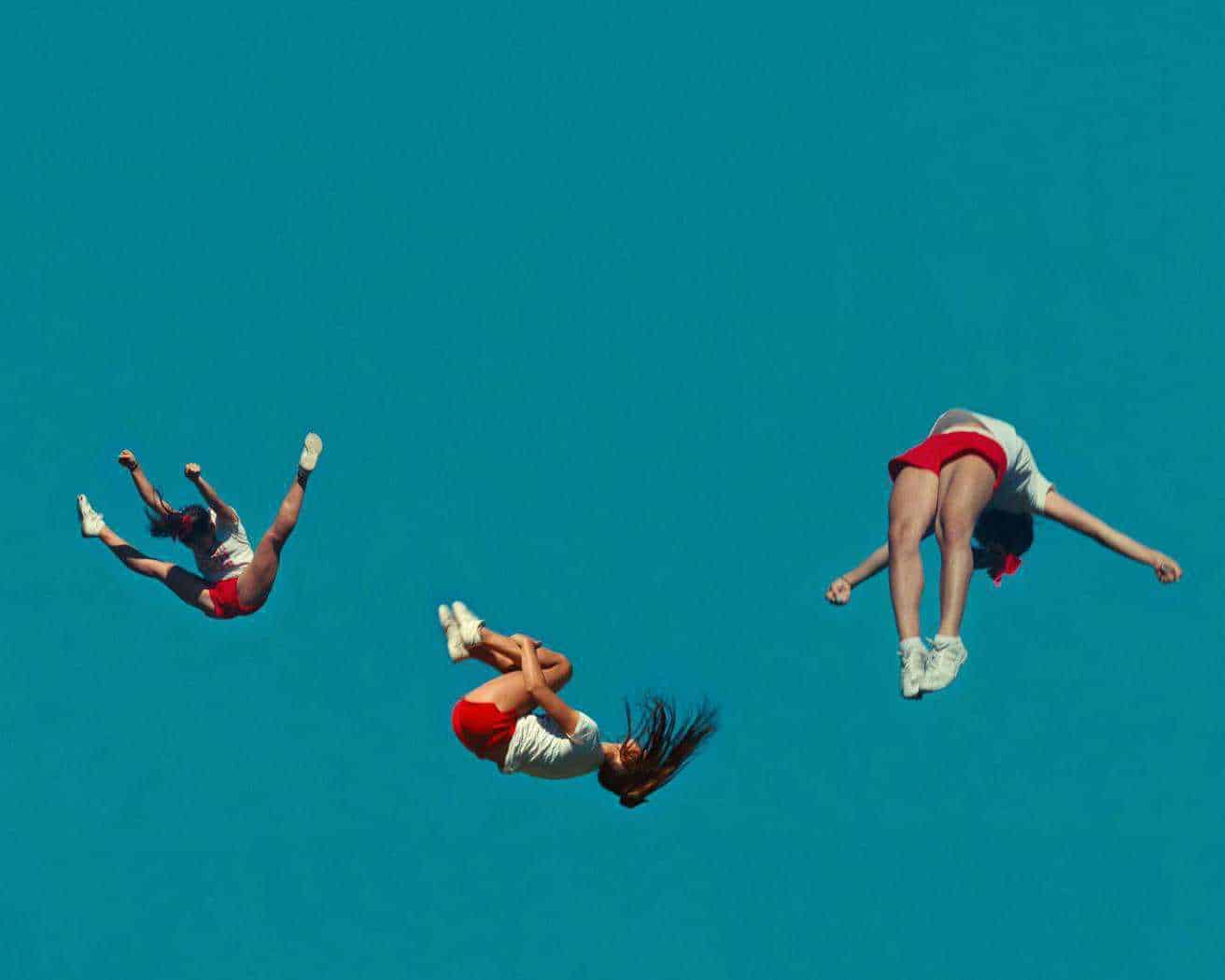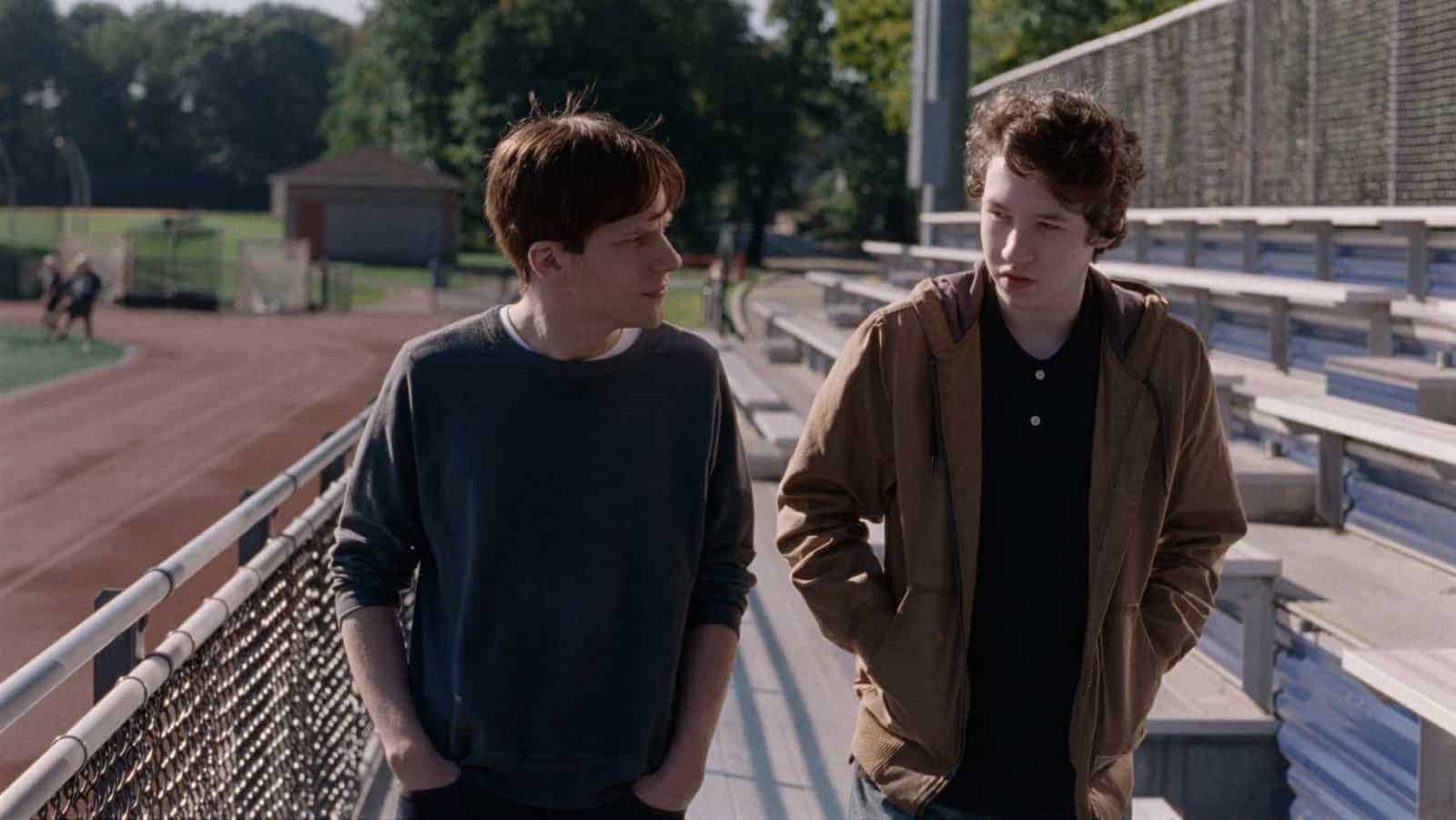Documentarian Josh Fox discusses his new film How to Let Go of the World (And Love All Things Climate Can’t Change). His goal wasn’t to educate but to energize. Fox emphasizes the pressing problem of climate change and elaborates on what political action we can take to help mitigate it.
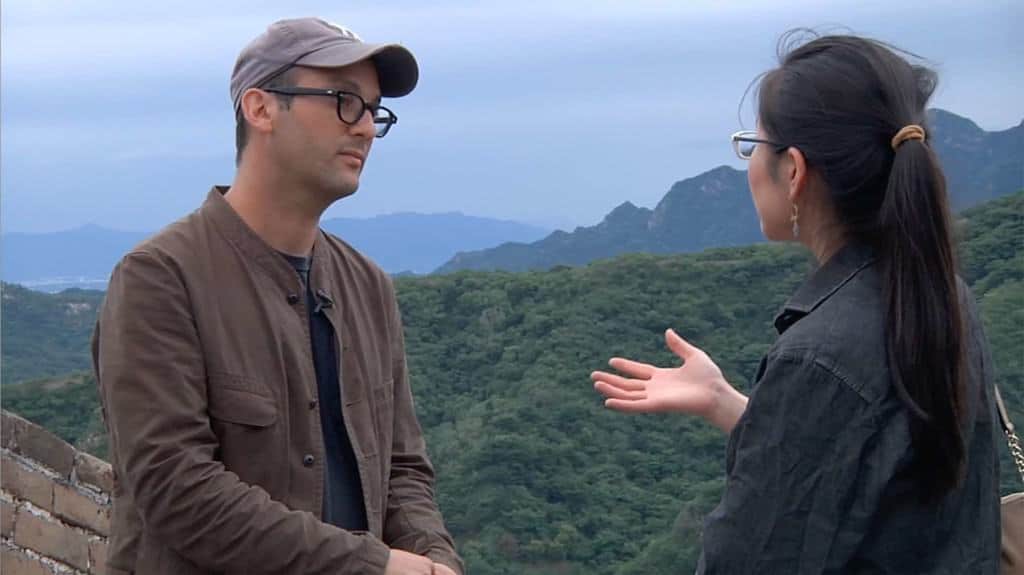
Unlike past films about climate change, from An Inconvenient Truth to Merchants of Doubt, Josh Fox’s goal with How to Let Go of the World (And Love All Things Climate Can’t Change) wasn’t to educate but to energize. By taking us around the world to meet people fighting climate change on the frontlines — from environmental stewards in the Amazon rainforest to researchers in China where the air is unbreathable — Fox gives us a window into other people’s passion for the fight, which sparks his own and ours.
In addition to inspiring grassroots movements, Fox hopes to effect change in the upcoming U.S. election. If you don’t know the nitty gritty details about climate change, it’s easy to dismiss it as “that environmental problem we’ll deal with later.” But the film shows why you can’t achieve social equality, quality healthcare, or any other progressive political plans without first addressing climate change.
Opening on Earth Day at the IFC Center in New York City, the film will make the rounds across the country at festivals and special screenings as part of the Let Go and Love Tour for the film. Fox hopes that the community screenings will be a meeting place for like-minded people to get inspired and organize. The film will air on HBO later this year. In preparation for its theatrical opening, I sat down with Fox to discuss the goals behind the film and the devastating impacts of climate change.
Seventh Row (7R): The film charts your own journey finding out what’s happening with climate change. How did you decide to make a movie about that?
Josh Fox (JF): I felt that I had to make the movie very personal. I couldn’t make a film that was just “here are the facts about climate change and let’s fix that.” It’s a much more complicated question than that. I think we end up in this death spiral between despair and denial. This film was trying to break that cycle.
Climate is the biggest question we’re going to face in our generation or in future generations. But when you want to work on it, it becomes so daunting. Because it’s so late. We’re so late. So many of the things we’re talking about we’re too late to fix. That’s incredibly depressing. This film breaks the cycle and starts to think about it in a different light.
I think I bring with me something of my grandparents’ holocaust survivor mentality. When something is so dark, the impulse is to reject it. But this has to say, “What makes life worth living? What is worth fighting for? What is left to fight for?”
7R: You really let the subjects talk, and we follow you on your own journey.
JF: I fought really hard to get to the places and survive the situations that the movie depicts: trekking 12 km in the Amazon to get to these oil spills with the indigenous environmental monitors — things that they do every day — there’s a bravery, courage, and challenge there, or being out on the water, blockading these gigantic coal ships with the Pacific Climate Warriors.
When you see the civil disobedience actions of Tim DeChristopher, he puts himself in that vulnerable position. He talks often about how that’s the position of the planet. It’s an incredibly vulnerable spot. We have to put ourselves in that spot to understand it. There’s a lot of philosophy and action in the film — half philosophy, half action sequences.
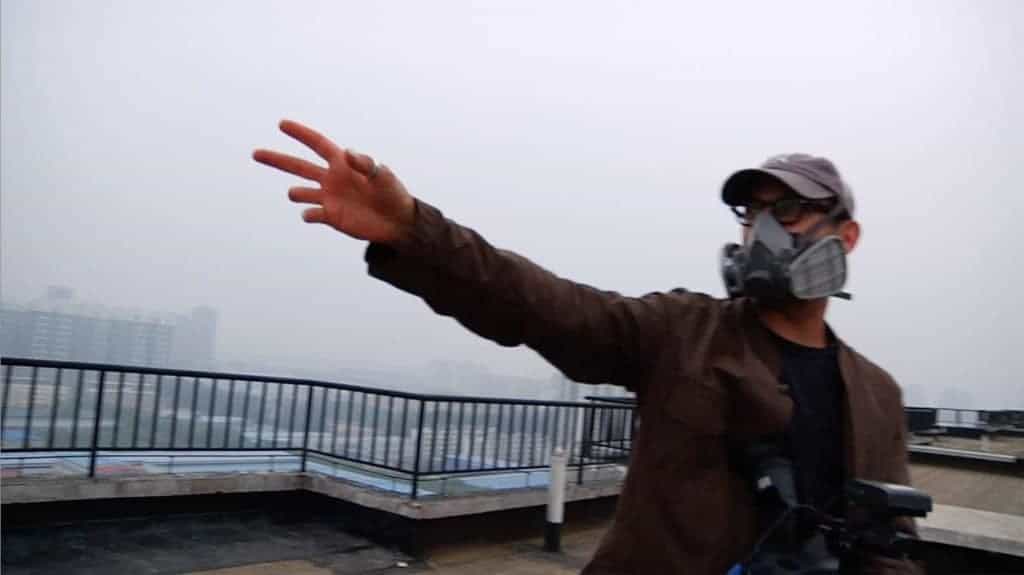
7R: One of the challenges when you’re making a movie about environmental issues is how do you get people to see it? You don’t want to just be preaching to the converted.
JF: I think that’s what HBO is good for. You literally walk into 20 million people’s bedrooms and living rooms across America. Being on television and in movie theatres, that helps a lot.
The film’s philosophy pertains to more than just climate change. I think it pertains to our state of political despair and disenfranchisement as a whole. In America right now, we’re really disenfranchised. The government belongs to the oligarchy. It’s the movements — the climate movement, the fracking movement, the occupy movement, the black lives matter movement, the movement to elect Bernie Sanders, the LGBT movements — that are out there right now, that have the chance of taking back America. These are the seats of power and empowerment in America. The film encourages the best kind of moral imagination.
The film is really about the despair we can encounter in that movement. It’s very hard to do what we’re trying to do as a nation of movements. I think we need to constantly reinvigorate and reenergize what it is that makes it worth doing, what it is that makes it worth sacrificing.
Preachy feels like the head rather than the heart. The way that people talk here is actually from the guts and from their heart. I think that makes the best kind of righteous indignation, the best kind of moral outrage.
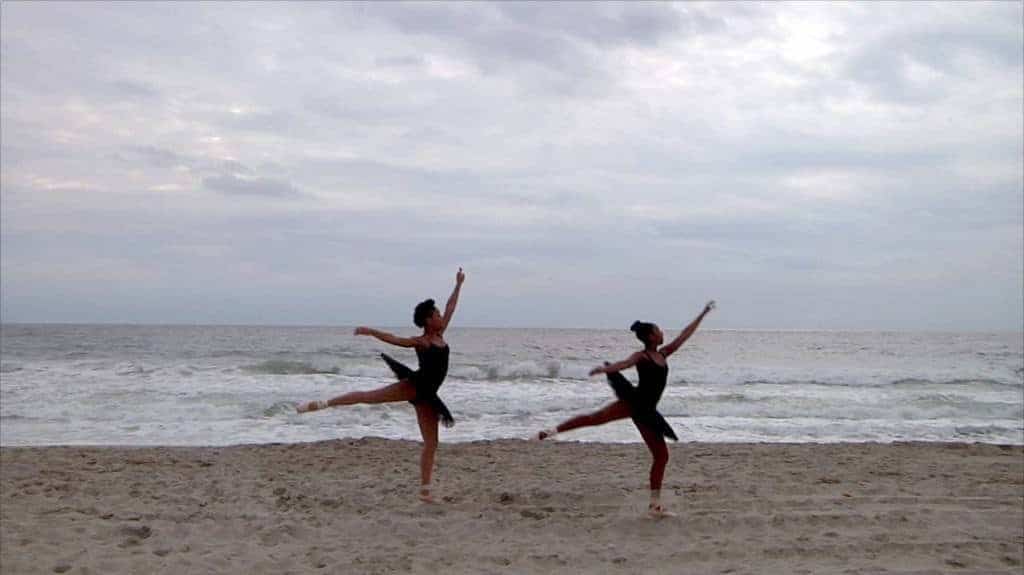
7R: How do you take all that footage from around the world and turn it into the story of your journey, into a film?
JF: I have rules about these investigative documentaries. If I have an answer, then I have to move onto the next question. I think a lot of the documentaries you see on “social issues”, you really get the whole message in the first fifteen minutes. They’re like essays. I don’t consider that cinema. I think of those as digest things.
At the beginning of this movie, I asked the question, “How do we stop climate change?” Relatively quickly, I come back with the answer, “Oh my god, it’s too late to stop so many of the things we fear when we talk about climate change: sea level rise, severe droughts, severe floods, extreme weather, the rise of infectious diseases, incredible migratory crises and refugees swarming across international boundaries because their homes are falling apart, the collapse of civilization itself.”
Then the movie becomes, how do you deal with the collapse of civilisation? How do you deal with the collapse of the natural environment? I think that is a much deeper and more profound question that nobody has the answer to. So that spurs the next part of the journey. I stop investigating climate change after thirty minutes, and start investigating the human spirit and civilization and through the lens of climate change, start investigating something much much more profound.
The key moment in the film was meeting Tim DeCristopher and he says, “It’s too late to stop a lot of this stuff. So let’s examine our values.” Our current value system, around the world, is based on consumerism, greed, competition, and violence. If we’re going to go forward as a human species, without destroying ourselves — the possibility of us destroying ourselves as a result of climatic changes, that’s the part that we can control.
When I think about the worst visions of climate change, I think about Hurricane Katrina, and the people from the inner city who are trying to escape their flooded streets, and they were told to “Go on the bridge to the suburbs. Take this bridge that will take you to safety on the mainland in the suburbs.” The black and the poor people in the inner city were met on the other side by white shock from the suburban police force telling them to go back and drown. This was not a climate change problem. This was a human moral failing. This was man’s inhumanity to man. This was a collapse of American values. We totally have the power to change that.
7R: What are you hoping to achieve with the film? What do you want to happen when people leave the cinema?
JF: There are very practical goals of the film, and then there are deeper, emotional, ethical goals. The practical goals are fought out through our tour and media presence. In America right now, we are making a huge transition, which would be a disaster for the climate. And that transition is borne of the clean power plant by President Obama, which facilitates the transition from coal to fracked gas. There are 300 fracked gas powerplants being proposed around America and thousands and thousands of miles of pipelines.
In a media sense, we’re trying to draw attention to the fact that Hillary Clinton, very much the hand-picked successor from Obama, is embracing fracking and fracked gas, and that is a disaster for the climate. So to talk about that and get her off of gas and really to support Bernie Sanders.
Those are the concrete goals: stop the fracking, stop the fracked gas powerplants, transition to renewable energy, and go town-to-town like Johnny Appleseed and encourage an organizing plan and encourage the transition to renewable energy at the local level. And to fight like hell against these insane developments like the constitution pipeline, the CPV powerplant, Millennium Pipeline, the Tennessee Pipeline, the Algonquin Pipeline, the Sable Trail Pipeline — they’re all these ridiculous names that sound like hiking trails. They’re the wrack and ruin of the climate and America.
On the emotional side, I think people are exhausted. This is re-energizing. The film starts and ends with dance sequences. In the theatre, you can come to our tour and our theatrical engagements, it’s an incredible atmosphere to see the film. We bring musicians and experts. And not cheesy, like hippy circles. The theory for change is work with the people who are most active, and let’s get them revved up on the ground at our campaign and tour events. The change the dialogue nationally by working with HBO by working with big media.
You may also like our review of Merchants of Doubt.
You may also like our review of This Changes Everything.
You may also like our review of Ice and the Sky.
You may also like our feature on the Sloan Prize for Science at Sundance.
